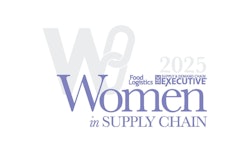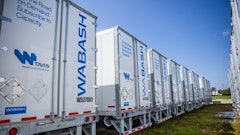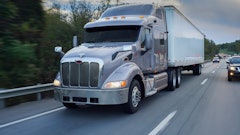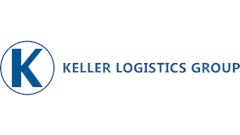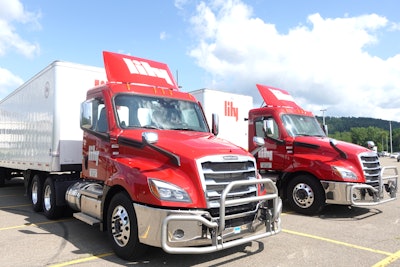
With intense and important focus on safe and secure movement from field to consumer and every stop in between, it can be difficult to navigate the complexities of the food supply chain. The Food Safety Modernization Act (FSMA), now in place for nearly a decade, underscores this complexity with rules covering food traceability, temperature monitoring, and contamination prevention, to name a few.
While these regulations are important for food safety, they add a layer of responsibility that can be difficult for private fleets to manage on their own. Many organizations are rethinking their transportation strategies and are turning to dedicated contract carriers (DCCs) as a way to strengthen compliance, efficiency, and resilience across the supply chain.
Flexibility to handle demand surges
Seasonal fluctuations and holiday demand surges remain one of the biggest challenges for food shippers. A private fleet of 25 trucks may find itself in need of additional capacity for extra loads for just a few days around Thanksgiving. Securing additional equipment and drivers can be costly and time-consuming. A DDC helps food shippers scale up and down and be equipped with additional resources to cover these demand fluctuations. Having a DCC absorb that burden for your organization allows your business to respond quickly to demand changes, keeping the end customer happy.
Access to specialized equipment and real-time monitoring
Food suppliers often require highly specialized equipment, from temperature controlled trailers to vehicles equipped with lift gates and/or side doors for urban deliveries without docks. DDCs take on the responsibility of sourcing, providing and maintaining this specialized equipment. They can also provide advanced monitoring capabilities, including real-time delivery status updates, temperature integrity and vehicle location. This is not only beneficial information for the business, but it helps the business stay compliant with food safety regulations. When anything falls outside of the predetermined parameters, alerts and notifications are issued so that problems can be addressed immediately while maintaining the integrity of the load.
Addressing the driver and equipment challenge
The transportation sector seems to be in a perennial driver shortage. Recruiting, training, and retaining qualified drivers — while also managing compliance with FSMA and DOT requirements — places a heavy burden on private fleets. A dedicated partner takes on this responsibility, managing everything from driver hiring and safety training to workers comp and insurance. The DDC is also responsible for all equipment oversight and liability coverage, including over-the-road failures, OEM-required preventive maintenance service, and annual inspections to meet Federal Motor Carrier Safety Administration (FMCSA) standards.
In light of sustainability initiatives by many firms in the food supply chain, a DDC can also work with a company to explore whether alternative-fueled vehicles make sense for them and then can procure those assets and train drivers on how to operate them. This helps align transportation operations with broader corporate ESG goals. The supervision of and responsibility for all of these areas of the business by a DCC helps businesses reduce operational risk while ensuring reliability.
Preserving brand integrity
For many companies, brand experience is of utmost importance. DDCs make it possible to maintain brand visibility and integrity by operating the equipment and drivers under the company’s identity rather than its own if that is what is wanted. When it comes to working with a DDC, there is no one-size-fits-all solution. Each contract is written to address the unique needs of the company.
Conclusion
A DDC is a single-source solution for all aspects of transportation, which allows a company in the food supply chain to focus on its primary business. Turning the transportation function of your operation over to a dedicated contract carrier is a turnkey solution for moving your products safely to your customers. It is customized private fleet without any headaches or liability.






